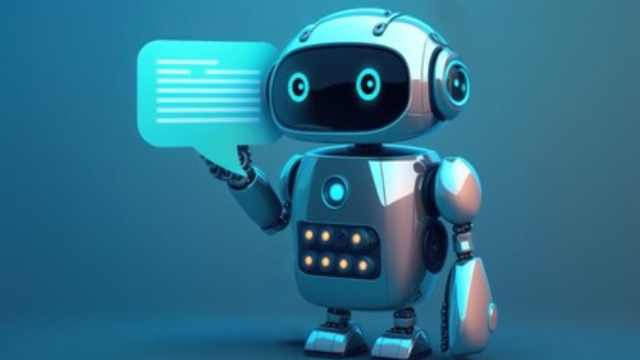Are you curious about which industries can remain unaffected by ChatGPT? Look no further! In this article, we will explore various sectors that can still rely on human expertise and interaction. From healthcare and legal services to creative industries and personalized financial advice, certain fields continue to require the unique skills and insights that only humans can provide. Join us as we delve into the industries that remain safe from the influence of ChatGPT.
Healthcare and Medical Services
In healthcare and medical services, you can rely on Chatgpt for efficient and accurate information retrieval and assistance. The advancements in healthcare technology and medical breakthroughs have paved the way for the integration of artificial intelligence (AI) systems like Chatgpt. This technology has the potential to revolutionize the way medical professionals access and utilize information.
With Chatgpt, healthcare professionals can access a vast amount of medical knowledge and research within seconds. This AI-powered system can quickly retrieve specific information, such as treatment guidelines, drug interactions, or the latest clinical trials. Its ability to process and analyze complex medical data allows for more accurate diagnoses and treatment plans.
Moreover, Chatgpt can assist in patient education and engagement. It can provide patients with easily understandable information about their conditions, treatment options, and preventive measures. This promotes shared decision-making between patients and healthcare providers, leading to better health outcomes.
However, it is crucial to note that Chatgpt should be used as a tool to complement the expertise of medical professionals, rather than replace them. While it can provide valuable assistance, it should never be considered a substitute for human judgment and clinical experience. Ethical considerations, such as patient privacy and data security, must also be carefully addressed to ensure the responsible use of this technology in healthcare settings.
Legal and Judicial Systems
You can also rely on Chatgpt for efficient and accurate information retrieval and assistance in the legal and judicial systems. With the advancements in artificial intelligence (AI), the legal industry is experiencing significant changes. AI technologies, such as Chatgpt, have the potential to automate various tasks in the legal field, including legal research, document review, and contract analysis. This automation can greatly impact job roles within the industry.
One of the key considerations in the adoption of AI in the legal and judicial systems is ethical considerations. As AI systems like Chatgpt become more integrated into legal processes, it is important to ensure that they adhere to ethical standards. This involves addressing concerns such as bias in algorithms, data privacy, and accountability for the decisions made by AI systems.
The impact of automation on job roles in the legal industry is another important aspect to consider. While AI can streamline and enhance certain tasks, it may also lead to the displacement of some job positions. For example, legal research tasks that were previously performed by human lawyers can now be done more efficiently by AI systems. However, it is important to note that AI is not a replacement for human expertise and judgment. Instead, it should be seen as a tool to augment and support legal professionals in their work.
Creative and Artistic Industries
Creative and artistic industries are likely to remain safe from Chatgpt due to the unique qualities that human creativity brings. While Chatgpt may be able to generate content, it lacks the ability to truly understand and replicate the depth of human emotion and connection that is essential in creative works. Furthermore, artistic interpretation is subjective and relies on the individual’s personal experiences and perspectives, making it difficult for an AI to fully grasp and replicate.
Human Creativity Unmatched
The domain of creative and artistic industries remains an area where the unmatched human creativity stands strong against the influence of Chatgpt. While artificial intelligence has made significant advancements, it still has limitations when it comes to replicating the depth and complexity of human creativity. Human ingenuity, fueled by emotions, experiences, and unique perspectives, allows for the creation of truly original and innovative works of art. Whether it’s painting, writing, music, or any other form of artistic expression, the human touch is irreplaceable. Chatgpt may be able to generate content that resembles art, but it lacks the underlying emotional connection and genuine inspiration that comes from the human mind. As such, creative and artistic industries can continue to thrive and rely on human creativity to produce exceptional and meaningful works that resonate with audiences on a profound level.
Emotional Connection Essential
One industry where an emotional connection is essential is the creative and artistic industry. In this industry, the ability to establish a strong emotional bond with clients and audiences is crucial for success. Whether it’s through a painting, a performance, or a design, artists aim to evoke emotions and create a connection with their audience. This requires not only technical skills but also the ability to understand and connect with people on a deeper level. Artists often engage in relationship building and personalized counseling to understand their clients’ desires and create artwork that resonates with their emotions. To illustrate the importance of emotional connection in the creative and artistic industry, consider the following table:
| Industry | Skills Required | Importance of Emotional Connection |
|---|---|---|
| Creative and Artistic | Technical skills, creativity | Essential for evoking emotions and establishing a connection with the audience. Relationship building and personalized counseling play a crucial role in understanding clients’ desires and creating artwork that resonates with their emotions. |
Unique Artistic Interpretation
When it comes to the creative and artistic industries, a subtopic that deserves exploration is the significance of unique artistic interpretation. In a world where AI technologies like ChatGPT are becoming increasingly sophisticated, it raises questions about the future of creativity and originality. However, there are certain aspects of the artistic process that are difficult to replicate through algorithms.
- Abstract expressionism: This art movement, characterized by spontaneous and non-representational forms, relies heavily on the artist’s individual interpretation and emotional expression. The unique brushstrokes and color choices cannot be easily replicated by AI.
- Surrealist photography: Surrealism is all about capturing dreamlike, subconscious imagery. The ability to combine unrelated elements and create thought-provoking visuals requires a deep understanding of human emotions and experiences, something that AI may struggle to replicate.
- The human touch: Artistic interpretation often involves personal experiences, cultural influences, and a distinct perspective. The human element brings depth and authenticity to artistic creations, making it difficult for AI to fully replace the artist’s unique vision.
While AI technologies may assist artists in certain aspects of the creative process, the significance of unique artistic interpretation remains a valuable and irreplaceable aspect of the creative and artistic industries.
Psychotherapy and Mental Health Services
You can find few psychotherapy and mental health services that are safe from ChatGPT. With the rise of telemedicine and remote counseling, online therapy platforms have gained popularity. However, these platforms also raise concerns regarding privacy and the potential risks associated with AI-powered chatbots like ChatGPT.
Online therapy platforms offer convenience and accessibility, allowing individuals to seek mental health support from the comfort of their own homes. However, the use of AI chatbots in these platforms raises concerns about the privacy and security of personal information. ChatGPT, while capable of providing automated responses and support, may lack the ability to fully understand complex emotions and provide appropriate therapeutic interventions.
Furthermore, the reliance on AI chatbots in psychotherapy and mental health services raises ethical concerns. The use of AI technology should complement, rather than replace, human therapists. While AI can assist in improving efficiency and accessibility, it should not be seen as a complete substitute for human interaction and expertise.
Privacy concerns in online therapy platforms go beyond the use of AI chatbots. The collection and storage of personal data, including sensitive information shared during therapy sessions, must be handled with the utmost care to ensure confidentiality. It is crucial for online therapy platforms to prioritize data protection and implement robust security measures to safeguard the privacy of their users.
Personalized Financial Advice and Planning
If you’re seeking personalized financial advice and planning, it’s important to consider the limitations of ChatGPT. While the language model has shown impressive capabilities, there are certain aspects of financial advising that may not be suitable for AI-driven platforms like ChatGPT. Here are three key limitations to keep in mind:
- Complex Financial Goal Setting: Setting financial goals involves a deep understanding of an individual’s unique circumstances, risk tolerance, and aspirations. ChatGPT, while proficient in generating text, may lack the ability to comprehend the intricacies of personal financial situations and provide tailored advice accordingly.
- Investment Portfolio Optimization: Constructing an optimized investment portfolio requires expertise in asset allocation, risk management, and market analysis. While ChatGPT can provide general information about investment options, it may lack the ability to generate sophisticated strategies that take into account individual preferences and market conditions.
- Emotional and Psychological Factors: Personalized financial advice often involves addressing emotional and psychological factors that influence financial decisions. While ChatGPT can offer some guidance, it may not possess the empathy and interpersonal skills necessary to provide the emotional support and understanding that individuals often require.
While ChatGPT can be a valuable tool for obtaining general financial information, it is important to recognize its limitations when it comes to personalized financial advice and planning. It is always advisable to seek guidance from qualified financial professionals who can provide tailored advice based on a comprehensive understanding of your unique circumstances.
Complex Scientific Research and Development
When it comes to complex scientific research and development, there are two key points to consider. Firstly, the protection of sensitive data is of utmost importance in this field, as research findings and proprietary information need to be safeguarded. Secondly, the expertise required in scientific research is highly specialized, necessitating in-depth knowledge and understanding that may be difficult for ChatGPT to replicate accurately. Therefore, while ChatGPT may have its applications, it may not be a suitable replacement for the complex scientific research and development industry.
Sensitive Data Protection
In the realm of sensitive data protection, ChatGPT offers a reliable solution for safeguarding complex scientific research and development. With its advanced capabilities, ChatGPT can assist in securing valuable data through the implementation of data encryption and cybersecurity techniques. Here are three ways ChatGPT can help protect sensitive data in the field of complex scientific research and development:
- Data Encryption: ChatGPT can employ encryption methods to ensure that sensitive information is securely stored and transmitted. This helps prevent unauthorized access and protects the confidentiality of valuable research data.
- Cybersecurity Techniques: ChatGPT can integrate robust cybersecurity measures, such as firewalls, intrusion detection systems, and vulnerability assessments, to defend against potential threats and attacks. These techniques help maintain the integrity and availability of scientific research data.
- Secure Collaboration: ChatGPT enables secure collaboration among researchers by implementing access controls, authentication mechanisms, and secure communication channels. This ensures that only authorized individuals can access and contribute to the research, minimizing the risk of data breaches.
Expert Knowledge Requirement
To navigate the field of complex scientific research and development, an essential requirement is expertise. This is because the nature of this industry demands a deep understanding of technical specifications and historical events. When dealing with intricate scientific concepts, it is crucial to have a solid foundation of knowledge to ensure accurate analysis and interpretation. Without the necessary expertise, the risks of misinterpreting data or drawing incorrect conclusions increase significantly. Complex scientific research and development often involves intricate experiments, cutting-edge technologies, and intricate data analysis. Without expert knowledge, it can be challenging to understand and navigate these complexities effectively. Therefore, industries that heavily rely on complex scientific research and development, such as pharmaceuticals, aerospace, and biotechnology, are less likely to be fully replaced by Chatgpt due to the expert knowledge requirement.



